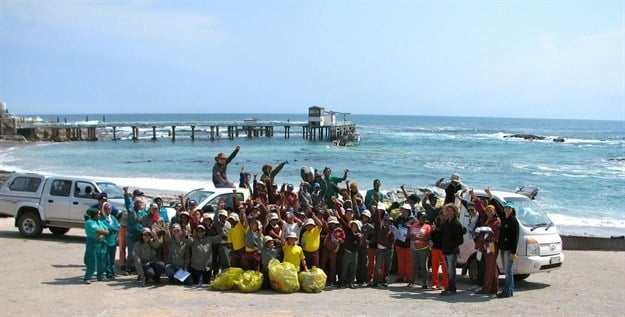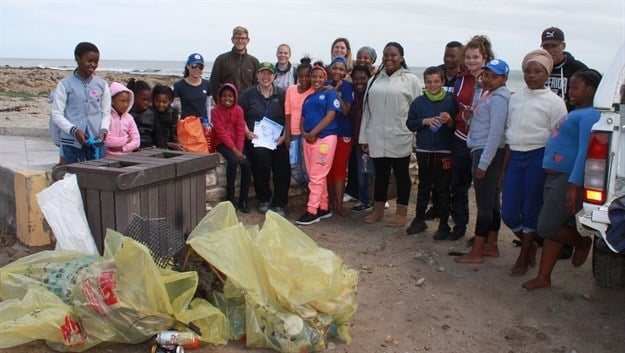Plastics|SA recently released the audited results of the biggest pollutants found on our beaches during 2017.
According to John Kieser, sustainability manager of Plastics|SA and coordinator of the clean-ups that took place in the Cape provinces, the past few months were spent compiling and analysing the datasheets that were filled in by more than 30,000 volunteers.
More than five tonnes of litter removed
Throughout the year Plastics|SA distributed nearly 350,000 bags used for clean-ups nationwide. 16,298 volunteers helped to remove more than five tonnes of litter from beaches in the three Cape provinces alone, while approximately 8,000 volunteers participated in KZN. Several thousands of volunteers also participated in clean-ups hosted inland to clean rivers and water sources.
“The information we get from these clean-ups are relayed and used by international organisations such as Ocean Conservancy to provide an item-by-item, location-by-location snapshot of marine debris. As a signatory of the Declaration of the Global Plastics Associations for Solutions on Marine Litter, this information has become an integral part of Plastics|SA’s ongoing clean-ups and education campaigns,” Kieser explained.
Single-use packaging items continue to be biggest pollutants
"Broken down plastic pieces, food wrappers, containers, as well as bottle caps and lids continue to be the most commonly found, post-consumer waste items on our country’s beaches. This is clearly showing that we are dealing with human behaviour that needs to be addressed and corrected,” Kieser said.
The Plastics|SA results have also shown a year-on-year increase in the number of regular beach clean-ups which are being initiated and driven by communities and volunteers. This past year has seen more clean-ups taking place in areas where little or no area cleansing is done by local authorities (i.e. informal settlements); while large groups of school children from these and other areas continue to participate in organised clean-ups around the provinces.
“These community efforts have a domino-effect and definitely contribute to less litter ending up on our beaches. It is wonderful to have so many different voices from all walks of life speaking out against littering and illegal dumping, and neighbourhoods taking responsibility for their own actions. This has also highlighted the growing need for groups to sort material for recycling purposes, improve waste management systems and for more recycling facilities to be established around the country,” Kieser said.
A growing awareness of marine litter
Kieser said that regular beach clean-ups help to create a growing awareness of the negative impacts of marine litter on the environment, and also allow for a closer monitoring of the problem. Thanks to the ongoing commitment of organisations such as Ocean Conservancy, the United Nations Environmental Programme (UNEP), the National Oceanic and Atmospheric Administration (NOAA), the African Marine Waste Network, KZN Marine Network and Plastics|SA, more people in Africa, and specifically southern Africa, are familiar with the issue of marine debris.
“Plastics are valuable and make our modern lives convenient and easy. However, they should be disposed of responsibly in order to be recycled and never end up in our landfills, much less in our waterways or oceans. Never before has the issue of plastics in our oceans received so much attention. Consumers, politicians and industry leaders such as Plastics|SA are uniting their efforts and their voices around the globe to ensure that we protect our marine life from plastic and other packaging materials - which are threatening their natural habitats and therefore also their survival,” Kieser says.





































